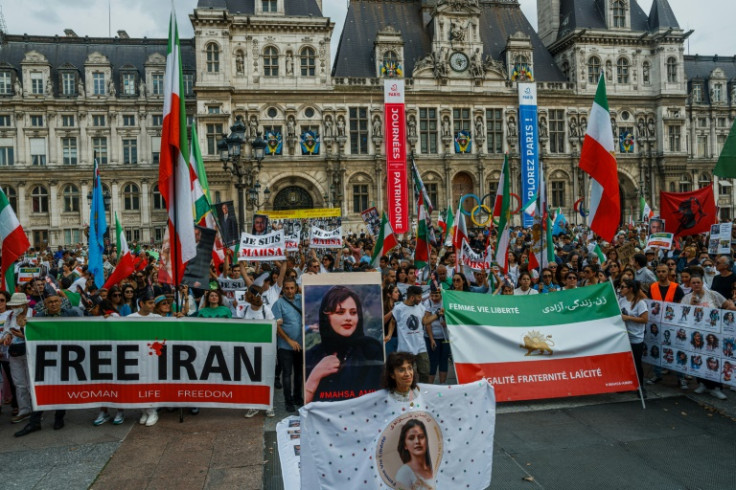
Iran Human Rights group have reported that between January 2023 and October 2023, more than 600 people have been executed in Iran – currently measuring at 604.
The mounting death toll includes 13 women and marks an alarming increase in executions in the country compared to the same period of time in 2022.
Last year, there were 582 people reportedly executed in Iran – representing a 75 per cent increase in killings since the 333 executions recorded in 2021.
Last month, outside Iran's notorious Ghezel Hesar Prison in Karaj, located in the surrounding areas of the neighbourhood of Teheran, there were nine executions in one day.
Two of the prisoners were executed after being accused of adultery – according to the Norway-based Iran Human Rights group.
The prisoners who have been sentenced to death have been identified as Leila Kholghi Sakachayi and Abolfazl Barat Vakili. While death sentences for adulterous charges have diminished in recent years, sex outside of marriage remains illegal in Iran.
Both Sakachavi and Vakili were sentenced to death after secret recordings were provided to a Tehran court in August this year. The footage was taken without consent and led to both of the suspects being found guilty.
"The international community shouldn't tolerate executions being carried out for consensual sex ... in the 21st century by a government that has a seat at the United Nations," the Director of Iran Human Rights, Mahmood Amiry-Moghaddam, said.
The remaining prisoners, mostly men, were hanged after being charged with murder, said Iran Human Rights group, noting that one man was from Afghanistan.
The Director of Iran Human Rights stated: "The international community must react to more than 600 executions in 10 months — that's two state murders a day."
With reference to Iran being made Chair of the United Nations Human Rights Council last month, Amiry-Moghaddam added: "Silence is indirect consent to these crimes."
The mounting number of executions is also the highest the rate has been since 2015 when the number of people executed amounted to 972.
Iran has since been listed as the world's top executioners of women, as well as the country with the second highest number of recorded executions – behind China.
A spokesperson for the UN Human Rights Office, Elizabeth Throssell, condemned Iran for the "execution of Hamidreza Azari".
The 17-year-old girl " was accused of murder and is the first reported execution of an alleged child offender in Iran this year", Throssell added.
In her statement, the UN spokesperson continued to note: "We are also troubled by the execution, on the same day, of 22-year-old Milad Zohrevand – the eighth person to be executed in the context of the September 2022 protests."
According to the UN Human Rights Office, the execution of Zohrevand "lacked the basic requirements for due process under international human rights law".
"There are also troubling reports that Zohrevand's parents were arrested following his execution," Throssell's statement continued.
"We deplore the executions," she said.
Since September 2022, the symbolic 'Women, Life, Freedom' protests have emerged across Iran. The global movement sets out to give women and girls in Iran their fundamental human rights.
The popular demonstrations were fuelled by the death of 22-year-old Mahsa Amini who died in the custody of Iran's morality police in Tehran.
According to the brutal police force, which has been blamed for the deaths of several women across the country, Amini was arrested for breaching the Islamic government's strict dress code for women.
In response to the uprising of feminist protests, the Iranian authorities have launched a crackdown on demonstrators and activists – according to human rights groups in Iran.
In her statement, Throssell also said: "We also call on the government to stop using criminal procedures to punish political activists and others for exercising their rights to freedom of speech and peaceful assembly."







